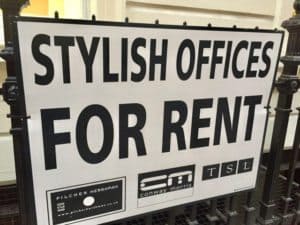
Real estate crowdfunding has experienced rapid growth in the US. Yet most opportunities have been made available only to accredited investors. As securities laws are updated to accommodate the emerging innovation of internet finance traditional methods of funding real estate projects are being disrupted. At times this has created an opportunity for smaller investors to participate in asset classes previously denied.
Under current rules, an accredited investor is defined as an individual who earns $200,000+ a year or, alternatively, has a net worth of more than $1 million (not counting ones primary residence). If you are married, the threshold jumps higher to $300,000+ in combined annual income. While most people recognize these rules do not take into account an individual’s professional experience or knowledge of securities – and thus are pretty much non-sensical- it remains the rule of the land. Fortunately, there are a growing number of options for smaller investors to be able to take advantage of one of the most popular asset classes without having to buy the property directly.
 Amy Wan, a securities attorney and former General Counsel of Patch of Land (a real estate crowdfunding platform), told Crowdfund Insider;
Amy Wan, a securities attorney and former General Counsel of Patch of Land (a real estate crowdfunding platform), told Crowdfund Insider;
“I’m not an investment advisor, but I personally love real estate as an alternative investment. It’s a tangible, more concrete investment. And while the real estate industry will always fluctuate, it’s a very tried and true asset class.”
Regarding opportunities for non-accredited investors, Wan states;
“I think the crowd will see a good number of Reg A+ REIT products coming out, which will give them more access to real estate investment opportunity. As with every real estate investment, they should make sure they understand what they’re investing in–especially given the stage of the real estate cycle we’re in.”
As with any investment, there is intrinsic risk. But unlike early stage investing (startups) the risk associated with real estate is can be considerably less. Investors still must fully comprehend that occasionally deals go bad but if you diversify and have a good understanding of real estate, investing online can deliver very reasonable returns.
So what are some of the options for both non-accredited, as well as accredited, investors today. Below we have highlighted several opportunities to invest in real estate assets online.
Fundrise
Fundrise was doing crowdfunding before crowdfunding was cool. Using a little-known securities exemption (old Reg A+) founders Ben and Dan Miller started rehabbing properties in and around Washington, DC. Today Fundrise has moved away from single property crowdfunding having trailblazed a new fund structure labeled the eREIT. Similar to traditional REITs, the unlisted security allows both accredited and non-accredited investors to participate in a portfolio of real estate properties. Using Title IV of the JOBS Act which updated old Reg to a more flexible security exemption called Reg A+, their eREITs have grown from one to now five (2 of them are sold out). So far, Fundrise has differentiated between income and capital gains, as well as geographical options.
Small Change
 Small Change is on a mission to become the first real estate funding portal to utilize Reg CF. Created by Title III of the JOBS Act, Reg CF allows issuers the ability to raise up to $1 million online from both accredited and non-accredited investors. While most Reg CF platforms are focusing on SME funding, Small Change envisions a platform where smaller real estate projects are funded with the support of community members alongside a national audience of investors. The founders created Small Change to allow everyday people to invest in real estate projects that change cities and neighborhoods for the better. While several accredited offers are live on their site today, Small Change expects the first Reg CF offer to be listed soon.
Small Change is on a mission to become the first real estate funding portal to utilize Reg CF. Created by Title III of the JOBS Act, Reg CF allows issuers the ability to raise up to $1 million online from both accredited and non-accredited investors. While most Reg CF platforms are focusing on SME funding, Small Change envisions a platform where smaller real estate projects are funded with the support of community members alongside a national audience of investors. The founders created Small Change to allow everyday people to invest in real estate projects that change cities and neighborhoods for the better. While several accredited offers are live on their site today, Small Change expects the first Reg CF offer to be listed soon.
RealtyMogul.com
One of the largest real estate crowdfunding platforms in the US, RealtyMogul.com has pursued a highly diversified approach for both debt and equity real estate investment opportunities from across the country. Originally only for accredited investors, this changed when RealtyMogul.com created their MogulREIT (using Reg A+) to offer non-accredited investors the chance to join in on the real estate offers listed on their platform. Minimum investments used to be $2500 but have since been lowered to $1000 to facilitated a wider audience.
American Home Preservation
American Home Preservation or AHP purchases distressed mortgages at a discount. The platform reports the discount can be up to 50%. They then try to work out a sustainable solution for the home-owners in a win-win scenario. The people keep their home and investors earn some income. AHP strives to pay a return 12% per year on invested capital in the fund (Reg A+). AHP not only has a unique approach to real estate investing but also has probably the lowest investment minimum at just $100.
Rich Uncles
 This platform offers a non-traded REIT that some non-accredited investors may access. This depends on the state of residence of the investor. An article in WSJ.com from last year explained, “You’ve heard of Uber and you’ve heard of Airbnb. And you understand how these businesses have disrupted old school ways of operating …Rich Uncles is doing the same thing.” They claim to be reducing fees and thus boosting returns for investors. Minimum investments start at $500.
This platform offers a non-traded REIT that some non-accredited investors may access. This depends on the state of residence of the investor. An article in WSJ.com from last year explained, “You’ve heard of Uber and you’ve heard of Airbnb. And you understand how these businesses have disrupted old school ways of operating …Rich Uncles is doing the same thing.” They claim to be reducing fees and thus boosting returns for investors. Minimum investments start at $500.
There are many more non-traditional real estate opportunities in the queue. The internet is disrupting many aspects of finance and investing in real estate is near the top of the list. As always do your own homework and understand the risks.

